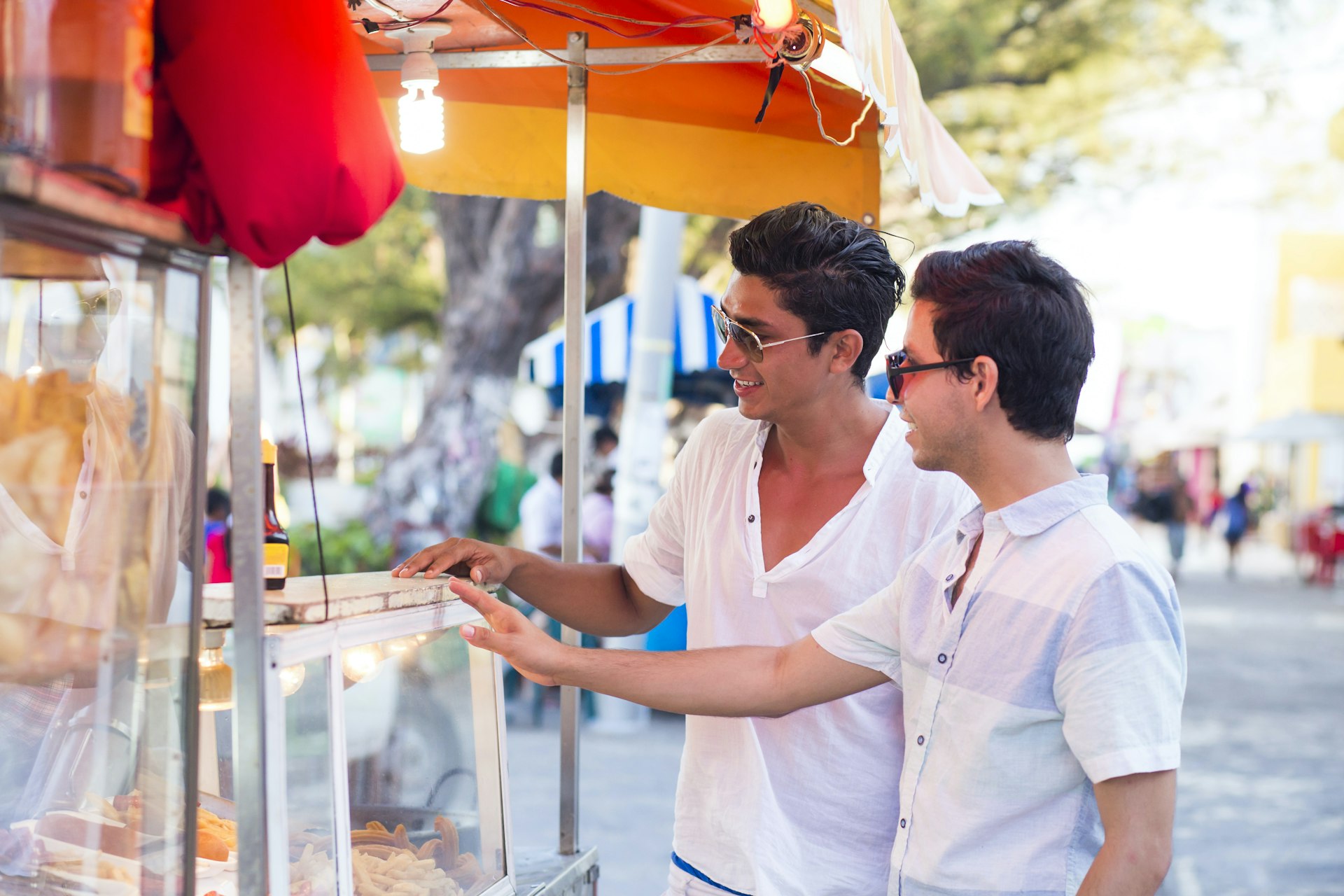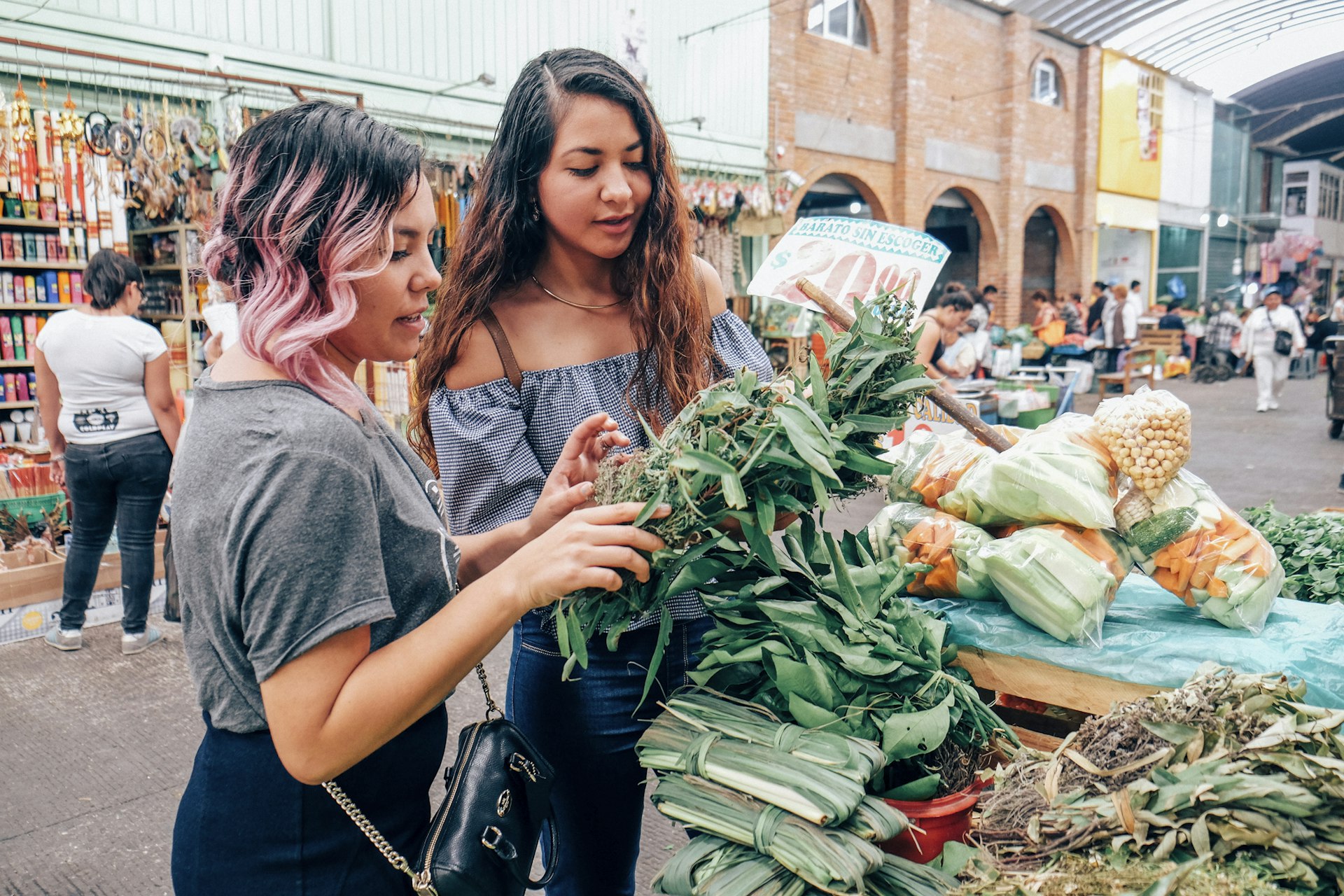Mexico City is one of the more expensive destinations in Latin America, yet visitors are still left impressed by its relative affordability when compared with major European and US cities.
Ranked as the 21st most expensive city in the world, just above Frankfurt, Mexico City is not as cheap as it once was due to the recent influx of digital nomads and the sharp increase in tourism that has seen a 93% rise in hotel accommodation prices.
However, there is still a budget-friendly time to be had in the former ancient Aztec capital. Mexico City is fantastic value for money when you consider the sheer quantity and quality of culinary and cultural offerings.
Daily costs in Mexico City
- Shared hostel room: MXN$260
- A room on Airbnb: MXN$440 to MXN$530
- A one-way metro ticket: MXN$5
- Museum entrance fee: MXN$70
- Michelada at a bar: MXN$50
- Tacos for two at a street food stand: MXN$30
- Dinner for two at a standard restaurant: MXN$280
Average daily cost: MXN$1050
Stay away from the swanky areas
Mexico is a colossal city, so picking the right neighborhood as your base is very important and also has a big impact on your budget. While Condesa, Roma, and Polanco are great areas, they are by far the most expensive due to the increase of foreign remote workers flocking to these upmarket parts in recent years.
Instead, settle for accommodation in neighborhoods such as Coyoácan in the south of the city. Home to Frida Kahlo for most of her life, Coyoácan has a bohemian vibe with less of a price tag and a great slice of local life. Although a little further out, it is very well connected by public transport and has many of its own sites worth visiting such as Kahlo’s Casa Azul and the lively Coyoácan Market.
Another area that balances affordability and safety is Centro Histórico – it has some cheap accommodation options and is right among the capital’s major sites.
Time your trip around Mexico’s festive calendar
A popular time to go to Mexico City is for the Day of the Dead in early November. During these first few days of the month, millions of locals, domestic tourists, and foreigners alike descend upon the capital, significantly increasing accommodation and airfare prices.
Easter and Semana Santa (Holy Week) are back-to-back festivals celebrated across Mexico. Locals often vacation during these two weeks, leaving the city quieter and cheaper than usual.
However, the rest of Spring tends to be one of the most pricey seasons. Other cheap times to visit are during the rainier summer months of July, August, and September or the colder months of January and February, which deter some sun-seeking tourists.
Hostel hop or stay in a host’s home
The most obvious way to save money on accommodation is to opt for a hostel, which can be as little as MXN$190 per night in Mexico City. If you’re not the backpacking type, the city is also awash with reasonably priced Airbnbs.
Instead of getting a whole apartment to yourself, which can be a bit more pricey, there are plenty of hosts renting out their spare rooms for around MXN$430 per night.
If you’re traveling as a pair, this can be just as cheap as a hostel dorm, without having to share a room with four or more other people. Make sure to find somewhere within walking distance of the local metro station to save time and money.
Make public transport your best friend
Mexico City has one of the cheapest metros in the world, with the cost of a single ride being only five pesos.
Head to the station’s ticket office and buy a single paper ticket for each time you ride, or, if you are staying for a little longer, you can purchase a MetroCard for around 15 pesos and top up as you go at the recharge machines.
Likewise, the MetroBus is six pesos and you can also purchase an electronic card for 10 pesos.

Make a beeline for the cheapest eats
Mexico City is a culinary titan, but the best thing about its food scene is that you don’t have to do fine dining to eat well. Its world-famous street food can be seriously cheap (think MXN$10 for a taco), in fact, it is one of the few places in the world where it can be a lot more economical to eat out than cook at home.
Look for dishes such as elotes (corn on the cob) slathered with mayo, cheese, and spicy salsas, marquesitas (crunchy crepes), tortas (big Mexican sandwiches), and gorditas (stuffed corn cakes).
But watch out: a cheap price is never worth the stomach cramps, so locate busy stands with lines of locals, indicating a good reputation and that food has not been left out for long.
Lunch like a hungry local
Another way to get your money’s worth when it comes to food is eating at a comedor or fonda – family-run cafeterias frequented by the godínez (local slang for office workers) during their lunch hour. These places serve comida corrida – home-cooked staples that are quick, easy, and cheap.
Look for unassuming establishments with handwritten signage saying menú del día. The fixed-price menu consists of three to four courses, serving soups, stews, fresh juices, and desserts like arroz con leche (rice pudding) all for 50 to 80 pesos.
Another option is to head to one of Casa de Toño’s branches, Mexico City’s answer to McDonald’s, serving antojitos mexicanos (Mexican bites) such as tacos, quesadillas, and flautas.
Capitalize on the city’s accessible cultural sites and experiences
The wealth of Mexico City’s history, architecture, and culture means the capital is overflowing with museums and art galleries.
Many museums are free on Sundays and around MXN$70 the rest of the week. Visit the iconic murals of Diego Rivera for free at the Secretaría de Educación Pública or Palacio Nacional.
There’s a jam-packed yearly schedule of cultural happenings in the city from film festivals and fairs to music concerts and exhibitions, most of which are free to attend.
Pack a picnic and head to the park
Despite being a major metropolis, Mexico City has large parks and green spaces where you can roam freely.
Parque Bicentenario has a stunning orchid garden, numerous sports pitches, and a large lake perfect for picnicking.
Chapultepec Park – known as the Central Park of Mexico City – has enough fun experiences to occupy an entire day. This green space houses a zoo, as well as Museo Nacional de Anthropologia and Castillo de Chapultepec – both a short hike up Chapultepec Hill.

Go treasure hunting in Mexico City’s markets
Mexico City is a destination where you could easily blow your whole budget on souvenirs alone. However, the capital is chock-a-block with public markets and tianguis (flea markets) heaving with good bargains, whether it’s handicrafts, second-hand clothing, artisan accessories, or kitsch interior decorations.
Mercado de Artesanías la Ciudadela is one of the most popular and economical in the city. Some of the markets and bazaars in the upmarket areas like Mercado Medellín in Roma Sur, are a little more on the pricey side.
Party the Mexican way in the city’s most diverse hangout spot
One of the safest and most affordable places to go out is Zona Rosa just west of the city center, which both locals and tourists enjoy.
Celebrated for its accessibility and inclusivity, it’s one of the most LGBTIQ+-friendly parts of the city and home to a growing Korean community.
The zone is crammed with cantinas, bars, karaoke venues, and antros (nightclubs). Try La Marchela, a lively terrace bar with great views and cheap drinks, or, for a glimpse of the area’s gay scene, hit the dance floors at Kinky Bar or Cabaretito Fusión. Stick to beer, as you can rack up a hefty bill drinking cocktails.
